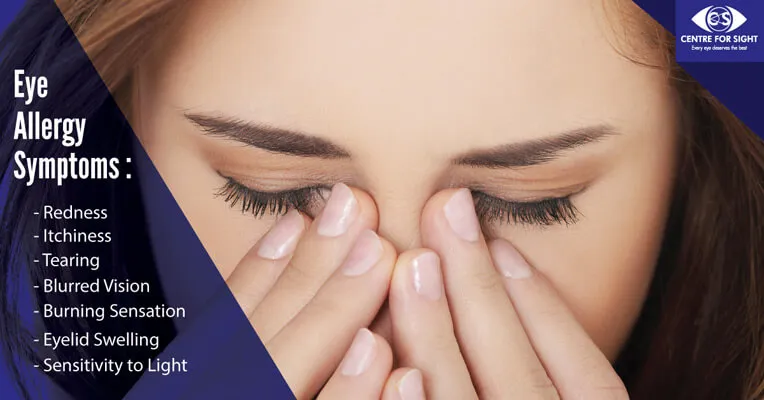Miseries of allergies are faced by millions of people all over the world, with allergic reactions involving the eyes being a common complaint. A reaction that affects the conjunctiva, a clear layer overlying the eyes, is commonly referred to as allergic conjunctivitis. Eye allergies, called allergic conjunctivitis, are a common condition that occurs when the eyes react to an allergen which creates irritation. Symptoms and Causes – The most common eye allergy symptoms include:
- Red, swollen or itchy eyes
- Burning or tearing of the eyes
- Sensitivity to light
Many eye allergies are caused by the body’s response to allergens in the air — both indoors and out — such as dust, pet dander, mold, or smoke. People who suffer from eye allergies usually have nasal allergies as well, with an itchy, stuffy nose and sneezing. It is usually a temporary condition associated with seasonal allergies. What has been observed is that eye allergies can develop from exposure to other environmental triggers. Most common airborne allergens are pet dander, dust, smoke, perfumes, or even foods. If the exposure is ongoing, the allergies can be more severe, with significant burning and itching and even sensitivity to light. Cure –
- Removing your contacts: Because the surface of contact lenses can attract and accumulate airborne allergens, consider wearing only eyeglasses during allergy season.
- Over-the counter eye drops: Because eye allergies are so common, there are a number of brands of non-prescription eye drops available
- Prescription medications: If your allergy symptoms are relatively severe or over-the-counter eye drops are ineffective at providing relief, you may need your eye doctor to prescribe a stronger medication.
- Immunotherapy: This is a treatment where an allergy specialist injects you with small amounts of allergens to help you gradually build up immunity.
Prevention- See your eye doctor before allergy symptoms start to learn how to reduce your sensitivity to allergens.
- Try to avoid what’s causing your eye allergies, whenever possible.
- Don’t rub your eyes if they itch. This will release more histamine and make your eye allergy symptoms worse.
- Use plenty of eye drops to wash airborne allergens from your eyes. Ask your eye doctor for the best brands.
- Cut down your contact lens wear or switch to daily disposable lenses to reduce the build-up of allergens on your lenses.
- Consider purchasing an air purifier for your home, and purchase an allergen-trapping filter for your furnace.
*The views expressed here are solely those of the author in his private capacity and do not in any way represent the views of Centre for Sight.





